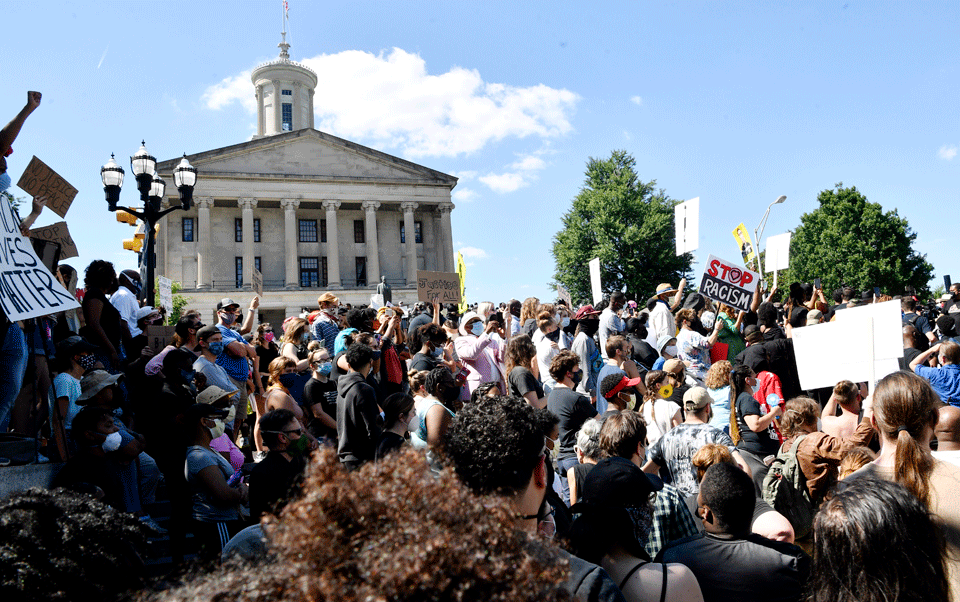
NASHVILLE—It used to be whenever I thought of Minneapolis the first images that popped into my mind were those of the American Indian Movement (AIM), founded there in 1968 in response to police brutality against the city’s Indigenous residents. Now, whenever I think of Minneapolis (which is constantly every day), the image that overwhelms my mind is that of African-American citizen George Floyd being barbarically tortured and killed by the white police officer Derek Chauvin.
That image was also reverberating in the mind of the thousands of demonstrators in Middle Tennessee who gathered to protest his execution over the last several days. On Saturday afternoon, May 30, several thousand protesters—Black, white, Red, Brown—gathered in Nashville’s Legislative Plaza for the “I Will Breathe Rally,” organized by local community activists. Speakers included some Nashville council members representatives, Mayor John Cooper, and several community advocates. This was a huge crowd, covering the entire Plaza.
After the rally, large numbers of protesters marched through the downtown area to the Central Police Precinct and confronted the local cops. Some police cruisers were damaged, and water bottles and rocks were thrown. This went on for some time before the demonstrators, still numbering in the several hundreds, marched to the Metro Nashville Courthouse and windows were broken, graffiti spray painted on its walls, and fires set inside the building before being put out by the Metro Fire Department. In the nearby downtown business district, some windows were smashed and some looting took place. The police acted with surprising restraint. Mayor Cooper declared a state of civil emergency, announced a 10:00 p.m. curfew, and, subsequently, there were over two dozen arrests.
Following the huge Saturday rally, another was held on Monday, June 1, also at the Legislative Plaza, to make specific demands of the Tennessee Legislature, which was back in session on that date. Several hundred protesters were in attendance and again community advocates and some elected representatives were among the speakers (this writer, as a community activist, was also invited to speak). The Tennessee National Guard and Tennessee State Troopers guarded the Capitol building.
The demands of the organizers were: (1) call off the National Guard from Nashville; (2) demilitarize the police, and; (3) repeal the laws that grant the police “qualified immunity” to commit atrocities in dealing with the public. There were no incidents at this rally.
In Murfreesboro, a largely university town about thirty miles from Nashville and the home of Middle Tennessee State University (MTSU), protesters did not fare quite so well. News reports of June 2 said that peaceful demonstrators over the weekend had been tear-gassed and at least one protester had been trampled by the horse of a mounted cop. Reports of children being tear-gassed also surfaced. The events recall the South of the Civil Rights era and bring to mind the racist Police Commissioner “Bull” Connor of Birmingham, who is most infamously remembered for turning fire hoses and attack dogs on African-American children demonstrators in the 1960s.
As for any bursts of violence and vandalism in these protests, this is of course not to be advocated, but claims that such actions overshadow the savage murder of George Floyd and police violence against people of color are simply trying to divert attention from the subject of state-sanctioned racist murder and amount to an excuse to thwart justice. As Martin Luther King, Jr., said, “A riot is the language of the unheard.” The anger on display in the protests can be easily understood by those on the right side of history.
The world understands that the United States is not a beacon of freedom, human rights, and democracy. An African-American minister recently remarked, “The U.S, has the right ideals, but the country has never lived up to them.” In Nashville, the protester organizers have adopted the term “protectors” as more appropriate for those demonstrating against police attacks on people of color. Also, community demands made at the last Metro Council meeting of June 2 escalated to include that the Metro Nashville Police Department be defunded and that Police Chief Steve Anderson be removed. More protests are planned in the city.
As for the latest antics of Trump, threatening to send in the military to suppress the right of the people to peacefully assemble and express their grievances, in the words of prominent economist Paul Krugman in a New York Times op-ed June 2, “He (Trump) seems very close to trying to incite a civil war.”
Bear in mind that the military is composed of poor working-class white, Black, Brown, and Red soldiers. Could Trump’s attempt to set the armed forces on the people cause a splintering of the military? Too early to say.


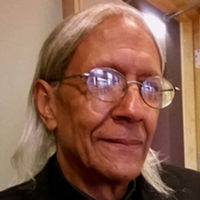
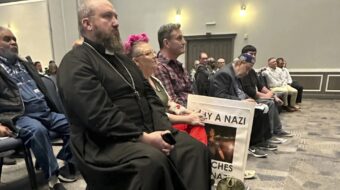
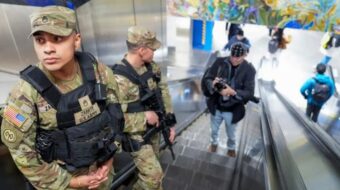
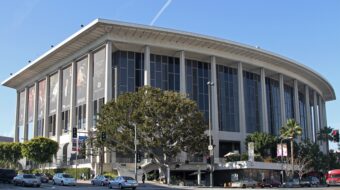






Comments